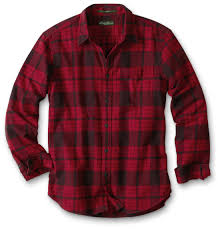flannel
英 [ˈflæn.əl]
美 [ˈflæn.əl]
- n. 法兰绒;法兰绒衣服;法兰绒巾
- vt. 给…穿上法兰绒衣服;用法兰绒包
- adj. 法兰绒的
使用频率:

记忆方法
1. 音译“法兰”。
中文词源
flannel 法兰绒
来自PIE*wele, 羊毛,词源同wool.字母 f,w音变。用来指法兰绒。
英语词源
- flannel
-
flannel: [14] Flannel is probably one of the few Welsh contributions to the English language. It appears to be an alteration of Middle English flanen ‘sackcloth’, which was borrowed from Welsh gwlanen ‘woollen cloth’, a derivative of gwlān ‘wool’. This in turn is related to Latin lāna ‘wool’ and English wool. It is not clear where the British colloquial sense ‘insincere talk’ (which seems to date from the 1920s) comes from, although it may well have been inspired by Shakespeare’s unflattering application of the word to a Welshman in the Merry Wives of Windsor 1598: ‘I am not able to answer the Welsh flannel’, says Falstaff of Hugh Evans, a Welsh parson.
=> wool - flannel (n.)
- "warm, loosely woven woolen stuff," c. 1300, flaunneol, probably related to Middle English flanen "sackcloth" (c. 1400); by Skeat and others traced to Welsh gwlanen "woolen cloth," from gwlan "wool," from Celtic *wlana, from PIE *wele- (1) "wool" (see wool). "As flannel was already in the 16th c. a well-known production of Wales, a Welsh origin for the word seems antecedently likely" [OED].
The Welsh origin is not a universally accepted etymology, due to the sound changes involved; Barnhart, Gamillscheg, Diez suggest the English word is from an Anglo-French diminutive of Old French flaine "a kind of coarse wool." Modern French flanelle is a 17c. borrowing from English.
权威例句
- 1. Wipe off any excess make-up with a clean, moist cotton flannel.
- 用干净的湿绒布擦去多余的化妆品。
- 2. a grey flannel suit
- 一套灰法兰绒西服
- 3. She always wears a grey flannel trousers.
- 她总是穿一条灰色法兰绒长裤.
- 4. She was looking luscious in a flannel shirt.
- 她穿着法兰绒裙子,看上去楚楚动人.
- 5. No amount of flannel could disguise that this was, at best, a minimalist solution.
- 说多少废话都无法掩饰这最多只是一个极简主义的解决方案。